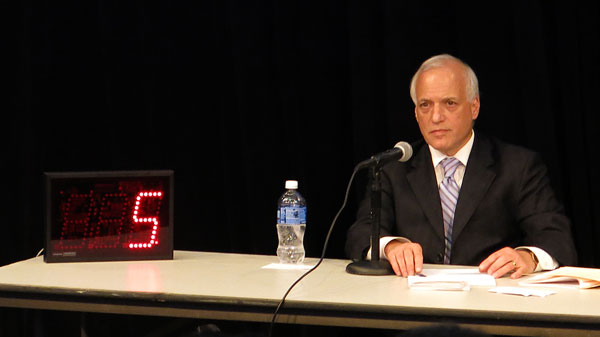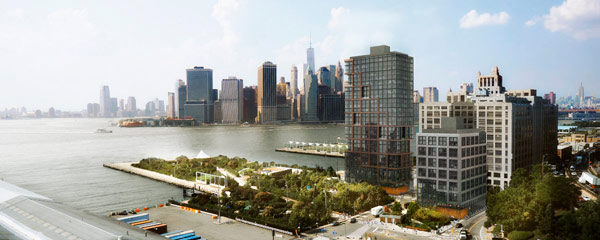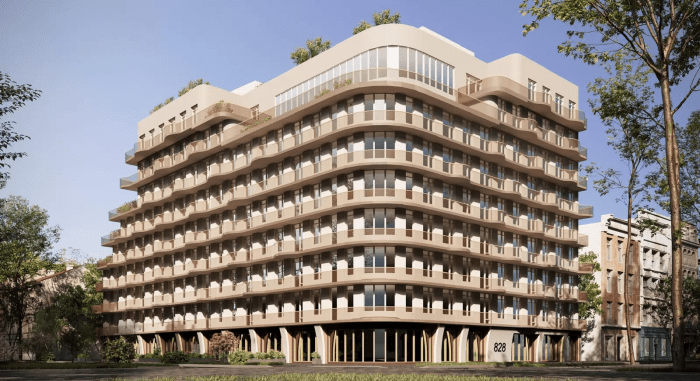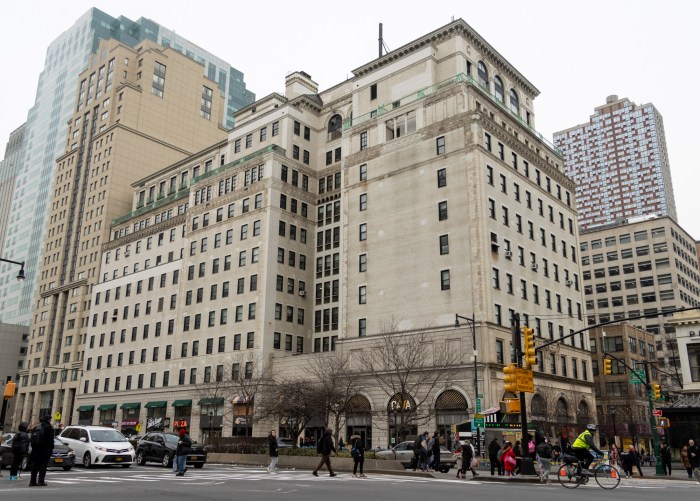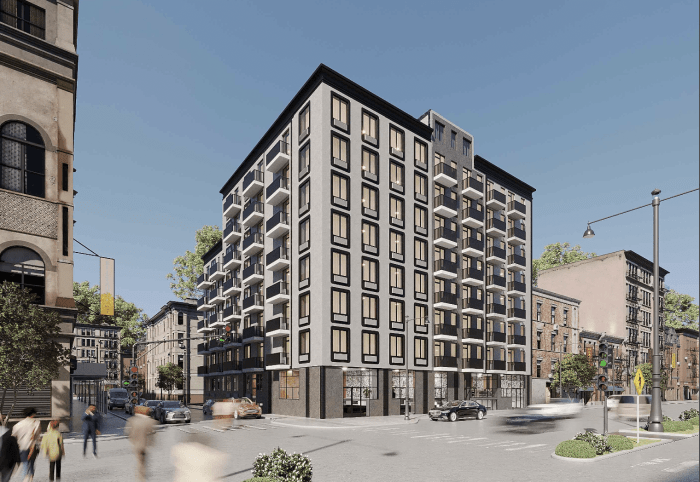The city must kill plans to build two money-making apartment towers near the Atlantic Avenue end of Brooklyn Bridge Park because the skyscrapers are not needed to keep the open space in the black and will only add to congestion and overcrowding in area that is about to be densely developed, according to residents and politicians who spoke at a heated meeting last night at St. Francis College in Brooklyn Heights.
The vast majority of those who sounded off at the gathering — a requirement of the settlement of a lawsuit against the Pier 6 plans by an anti-development group and hosted by the Empire State Development Corporation and the Brooklyn Bridge Park Development Corporation, the agencies that oversee development in the park — reiterated claims that the buildings are overkill in an area where new luxury apartments will proliferate thanks to the closure, sale, and redevelopment of the former Long Island College Hospital nearby.
“The neighborhood’s changes are not being driven by thoughtful urban planning, but rather by real estate values that would have been considered laughable in 2005,” wrote state Sen. Daniel Squadron in a letter he submitted to the groups that outlined his reasons for reconsidering the plan. “When considered alongside the LICH development (literally), PS 8 wait lists, and other rapid changes, all of which are contemplated in isolation, it is impossible to argue that these developments do not have a collective impact on neighborhood character.”
Squadron also questioned the methods of the agencies which he claimed were doing everything they could to squash debate and push the towers through.
“I would like to respectfully point out that this process — the mid-summer modification hearing, the park staff’s insistence on recommending a developer it is not authorized to select, the general rush to build, the last minute release of an “independent” financial analysis — suggest an urgency that is not supported by the facts, he wrote. “The park is not facing a crisis in its operating budget. The rights on the Pier 6 sites will not expire. The urgency seems more a matter of politics than one of policy.”
The meeting was scheduled to revolve around a set of modifications to the Corporation’s general project plan of 2005 that allow the park to close the loop road currently ringing the development sites, add ground-floor retail and a pre-kindergarten facility, and the adjust of height of the buildings in order to comply with federal flood guidelines. It kicks off a 30-day public comment period in which locals can submit testimony to Park honchos before they votes on the modifications later this fall.
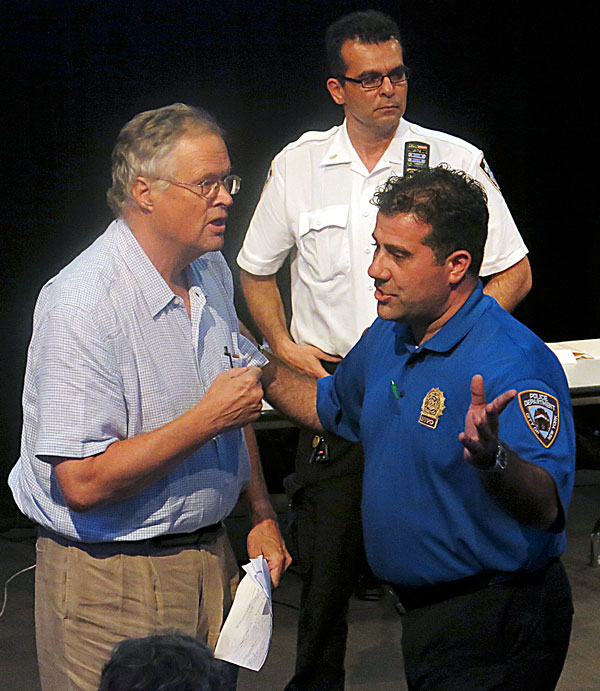
But it quickly grew tense as activists regularly jeered and booed pro-development speakers, and police had to remove one speaker after he demanded more time and refused to yield the floor.
Ninety people signed up to speak, and out of the more than 30 speakers, only one finished her remarks within the allotted time.
A city pol and Brooklyn Bridge Park leader implored the crowd to focus on the benefits the modifications would bring to the community.
“Let’s not turn this into something that it’s not,” said Deputy Mayor Alicia Glen, who is also the chairwoman of the Park’s board of directors. “These development sites were approved in the 2005 GPP. All we are looking to do here is to make them better by adding these benefits.”
But to the Pier 6 opponents, the fact that the project’s general plan is now a decade old became a central reason to throw it out and start from scratch.
“This is a simple opportunity at least to take a step back and try and make good, rational decisions,” said Councilman Brad Lander (D–Park Slope). “We will allow both of those properties to be put up for sale for development without making a plan for where those kids are gonna go to school in a neighborhood where all the schools are overcrowded? That is insane!”

Brooklyn Bridge Park was conceived with the promise that it would be self-sufficient, with private developments in the park are financing the large swathe of green space running from Dumbo to Cobble Hill. But the Corporation is not bound by transparency rules like a public city agency would be, and opponents have long questioned whether all of the development project in the park are necessary for its financial stability.
Park officials might be able to keep the space running without the two new towers, but are reasonably playing it safe by generating slightly more than the bare minimum, according to a report by an independent analyst that the Corporation released on Thursday.
“If BBP were only responsible for covering operating, maintenance and capital costs, it could
feasibly do so with the forecasted revenue stream that does not include Pier 6,” said Barbara Byrne Denham, an economist who focuses on real estate development. “Given the Park’s complex cost structure that includes steep maritime expenses, as well as the challenges associated with forecasting economic conditions over a fifty year horizon in a borough and city that has endured higher than average market vicissitudes, BBP’s conservative approach to managing its finances is not only appropriate but necessary given the high level of risk that it faces.”
As the hearing steamed past its scheduled end time of 9 pm with no end in sight, it was clear on Thursday that anti-development activists simply do not want a pair of new residential towers in their front yard.
“Why does it have to be in Brooklyn Heights,” yelled one woman. “Why not build it in Williamsburg?”
